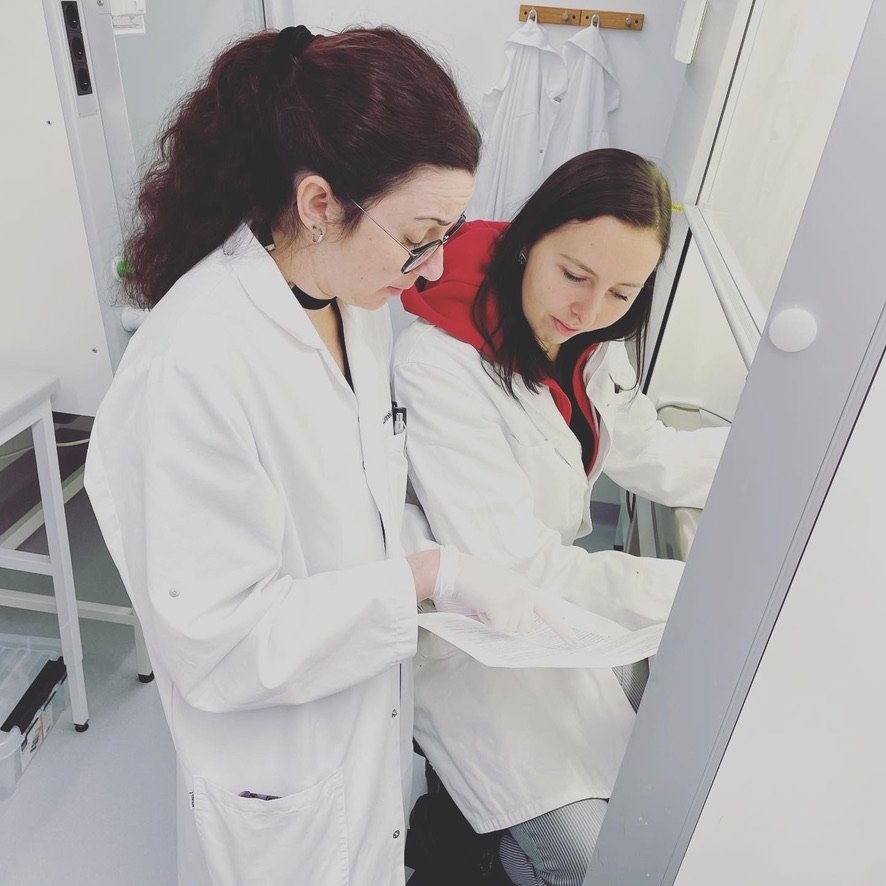One of the most valuable networking opportunities that AMRI supports are the AMRI Research Exchanges. Geared towards early career researchers, these exchanges provide financial support for travel and accommodations so that junior researchers can work in a new lab, brainstorm ideas, learn techniques, and network. AMRI exchanges can take place over a couple of days or up to 1 month.
Laura Bas Conn, lab engineer from Linnaeus University, sat down with AMRI to talk about her recent AMRI exchange at SLU, Uppsala. This interview has been condensed for brevity.
1. What inspired you to apply for an AMRI research exchange?
Because I am a lab engineer in our research group and I am new to the field of microbial ecology, any opportunity to visit another lab and learn from other people, see how other research groups function and learn about methodology at other institutions, to me is incredibly valuable.
I can bring back knowledge to our own lab and one should keep learning things until you die! It’s similar to taking a course but it’s even better because you get to interact one on one with other researchers, learn a lot and it is fun to travel too!
2. What was the process like in applying for an AMRI research exchange?
It wasn’t hard at all. All I did was email Caroline [AMRI Coordinator] and she sent me a template of a one-sheet application, which I wrote with my supervisor Hanna. Caroline then presented it to the lead AMRI PIs. It took a few days for them to make a decision and then Caroline also helped me book my trip over a Zoom meeting. It was super fast, super simple.
3. What was the aim of your research exchange?
During the summer, researchers from several Swedish universities went on an Arctic expedition and brought back thousands of samples. I traveled to a lab at SLU to work with some of my supervisors’ collaborators to help process samples, perform DNA extractions, and give them an extra pair of hands.
4. Out of the whole research exchange, what was your most valuable takeaway?
Just the experience of being in another lab within this field. I’m so new to this and so it was really valuable for me to work within the same field, using the same techniques, doing the same things that I do every day – but in a different university lab. SLU is such an old, well-established university that it was interesting for me to get an outside the box perspective on their methods.
5. Would you recommend an AMRI research exchange?
Yes! Networking is so important. As a lab engineer, my main goal is not necessarily publication but if you’re a PhD student and maybe you’re having challenges with one of your experiments, then it’s so valuable to have AMRI support this. You can go to another lab, brainstorm ideas with new people, find new solutions, network. As a researcher or PhD student that has to be invaluable for your career. During COVID, as a lab tech it’s been difficult to find courses that can teach me more, so that’s why this exchange has been really valuable.
- Laura Bas Conn, as interviewed by Caroline Littlefield
Want to learn more about how you can apply for an AMRI research exchange? Visit: https://www.amri-sweden.org/amri-student-exchanges

